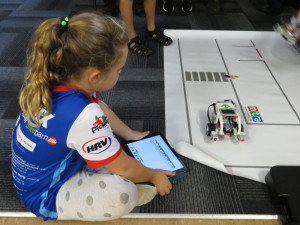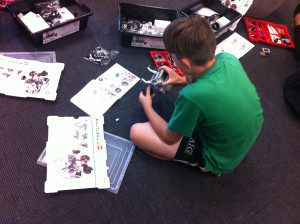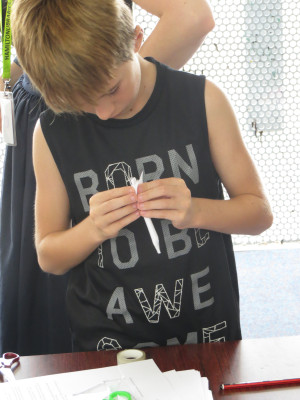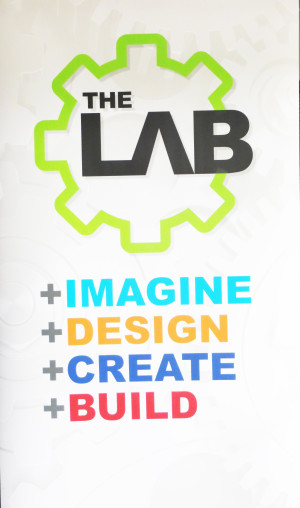Project Leaders: Dr Elaine Khoo & Professor Bronwen Cowie
Research Team: Fiona Hancock, Aaron Martin, Shannon Cooper
Project Dates: March 2018 - March 2019
Partnerships: Hamilton City Libraries
What is the research about?
 This project is a collaboration between educational researchers at the WIlf Malcolm Institute of Educational Research (WMIER) and Hamilton City Libraries to investigate the impact of introducing and implementing mobile makerspaces and digital-based learning resources to foster community awareness and engagement with STEAM (science, technology, engineering, arts and mathematics) activities.
This project is a collaboration between educational researchers at the WIlf Malcolm Institute of Educational Research (WMIER) and Hamilton City Libraries to investigate the impact of introducing and implementing mobile makerspaces and digital-based learning resources to foster community awareness and engagement with STEAM (science, technology, engineering, arts and mathematics) activities.
In mid-2017, Hamilton City Libraries introduced a mobile makerspace programme to foster community interest in STEAM activities and digital literacy skills. This aligned with part of their Strategic Plan 2015-2025 aimed to support Hamiltonians to be information literate, technologically competent and digitally aware, as well as to stimulate imagination, creativity and literacy-based learning for children and young people.
 A makerspace is a space where learners come together to use and learn about a range of available tools/resources (including new and digital technologies e.g. 3D-printers, mobile devices) to explore their interest and develop their own creative projects. Makerspaces can foster interdisciplinary-based project work spanning across all subject areas. Although gaining in popularity, makerspaces can be expensive to staff and resourced. Increasingly, educational institutions and public libraries are considering the idea of mobile makerspaces to make STEM ideas and activities more accessible to a wider community.
A makerspace is a space where learners come together to use and learn about a range of available tools/resources (including new and digital technologies e.g. 3D-printers, mobile devices) to explore their interest and develop their own creative projects. Makerspaces can foster interdisciplinary-based project work spanning across all subject areas. Although gaining in popularity, makerspaces can be expensive to staff and resourced. Increasingly, educational institutions and public libraries are considering the idea of mobile makerspaces to make STEM ideas and activities more accessible to a wider community.
 The library’s free mobile makerspace programme is known as “The LAB – Libraries' mobile makerspace” and is an interactive programme that uses STEAM-based activities to engage young people (8 years and older) to problem solve, think creatively, and develop innovative ideas through a variety of DIY and technology-based activities. This collaborative project will evaluate the extent the LAB programme has been effective in achieving the Library’s strategic goals and to scope further possibilities for improving the programme including identifying more sustainable approaches to facilitating the programme.
The library’s free mobile makerspace programme is known as “The LAB – Libraries' mobile makerspace” and is an interactive programme that uses STEAM-based activities to engage young people (8 years and older) to problem solve, think creatively, and develop innovative ideas through a variety of DIY and technology-based activities. This collaborative project will evaluate the extent the LAB programme has been effective in achieving the Library’s strategic goals and to scope further possibilities for improving the programme including identifying more sustainable approaches to facilitating the programme.
To this end, we will collect data from community users of the LAB programme (parents/caregivers of children who participate in the programme, participating children and adults in the programme, and library staff / volunteers who run the programme) through a survey, focus group interview and observations. Information about the project will be placed on the Libraries' and WMIER websites to inform the Libraries' users and the wider community.
Why is this research important?
 With the current government, local council, societal and tertiary providers' interest in making STEM (Science, technology, engineering and maths) based activities more accessible to a wider population, this collaborative effort to investigate the impact of introducing the LAB programme to the community through the library's services is timely and of strategic interest. A key recommendation on engaging young people in STEM education was to encourage them to gain expertise and engage with STEM activities across the whole STEM ecosystem beyond schools (including STEM industries, non-profit organisations and government funded initiatives) (Chapman & Vivian, 2016). This study is a small step towards fostering this understanding.
With the current government, local council, societal and tertiary providers' interest in making STEM (Science, technology, engineering and maths) based activities more accessible to a wider population, this collaborative effort to investigate the impact of introducing the LAB programme to the community through the library's services is timely and of strategic interest. A key recommendation on engaging young people in STEM education was to encourage them to gain expertise and engage with STEM activities across the whole STEM ecosystem beyond schools (including STEM industries, non-profit organisations and government funded initiatives) (Chapman & Vivian, 2016). This study is a small step towards fostering this understanding.
This study intends to evaluate the extent the LAB programme has been effective in line with the Hamilton City Libraries' strategic goals and make more explicit effective strategies in introducing mobile makerspaces that are STEAM focused to engage community interest. We aim to conduct between two to three cycles of evaluation. The findings will be useful to inform further refinements to the LAB programme (e.g. planning, conduct, resources used, staff expertise needed) and identify sustainable approaches to maintaining and running the programme.
Who may benefit from this research?
This research will help to inform future public and community educational initiatives to foster informal and non-formal learning of STEAM understandings and skills through establishing mobile makerspaces.
Project Outputs/Publications
Khoo, E., & Cowie, B. (2018). Mobile makerspaces as a catalyst for fostering STEAM activities in the community (PDF). Hamilton, New Zealand: WMIER, University of Waikato.
